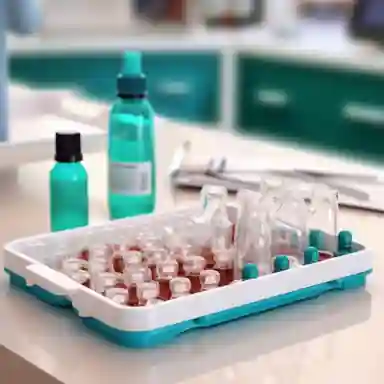What is Peptide Therapy?
Peptide therapy involves using specific amino acid chains to stimulate various bodily functions. For men, peptide therapy has gained popularity for its role in improving hormonal balance, enhancing physical performance, and supporting overall wellness. This article explores the benefits, uses, and potential side effects of peptide therapy in men’s health.
How Peptide Therapy Works
Peptides are short chains of amino acids that serve as building blocks for proteins. In the body, they regulate various functions, including hormone production, muscle growth, and immune responses. Peptide therapy introduces specific peptides to target and enhance these natural processes, offering benefits like increased muscle mass, fat reduction, and improved energy levels.
Key Benefits of Peptide Therapy for Men
- Boosted Growth Hormone (GH) Levels: Certain peptides stimulate the release of growth hormone, leading to increased muscle growth, faster recovery, and improved fat metabolism.
- Enhanced Libido and Sexual Function: Peptides like PT-141 can improve sexual desire and performance by increasing blood flow and stimulating dopamine receptors.
- Improved Immune Function: Peptides like Thymosin Alpha-1 enhance immune responses, helping men maintain overall health and prevent illness.
- Better Cognitive Function: Some peptides support brain health by enhancing mental clarity, focus, and memory.
Common Peptides Used in Men’s Health
- CJC-1295 and Ipamorelin: These peptides are commonly used to boost growth hormone levels, leading to improved muscle mass, fat loss, and energy.
- PT-141 (Bremelanotide): Known for enhancing sexual function, PT-141 stimulates libido and is effective for treating erectile dysfunction.
- Thymosin Alpha-1: This peptide boosts immune function and helps combat infections, making it beneficial for overall wellness.
- BPC-157: Known for its healing properties, BPC-157 supports recovery from injuries and promotes gut health.
Potential Side Effects of Peptide Therapy
While peptide therapy is generally considered safe, some potential side effects include:
- Injection Site Reactions: Mild swelling or redness at the injection site.
- Headaches or Nausea: Some users may experience headaches or mild nausea, usually subsiding as the body adjusts.
- Hormonal Imbalance: Improper dosing can lead to hormonal imbalances, underscoring the importance of professional supervision.
Is Peptide Therapy Right for You?
If you’re considering peptide therapy, consult a healthcare professional to determine which peptides align with your health goals. Personalized treatment plans and regular monitoring are essential for safe and effective results.
References:
• Zitzmann et al., 2019. “The Role of Peptides in Men’s Health,” Journal of Hormonal Research.
• Bhasin et al., 2018. “Peptide Therapy and Growth Hormone Levels,” Journal of Clinical Endocrinology & Metabolism.
• Cohen et al., 2017. “Peptides for Sexual Health,” International Journal of Men’s Health.
• Hackney et al., 2019. “Peptides and Cognitive Function,” Psychoneuroendocrinology.
• Travison et al., 2017. “Immune Benefits of Peptide Therapy,” Hormone Research in Men.


